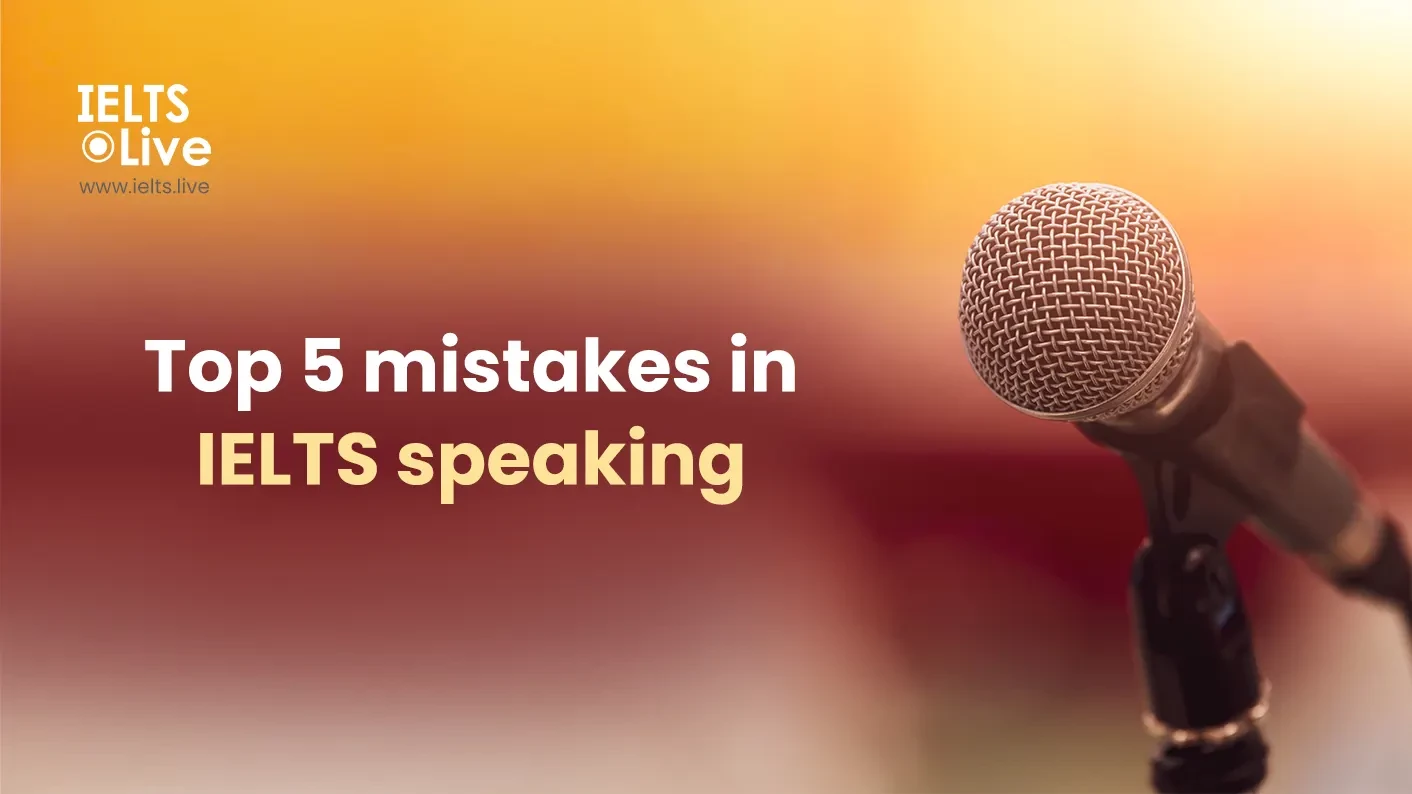
Are you tired of traditional study methods for the IELTS speaking test that yield average results?
It's time to revolutionize your approach and unlock your true potential!
In this guide, we will explore unconventional strategies specifically tailored to the IELTS speaking test, ensuring your success in this crucial component.
Are you confident in your ability to understand English, but often find yourself struggling to express your thoughts in the language? If so, perk up! You are not alone.
Many non-native speakers face similar challenges in effectively communicating their ideas in English.
The English language can be a tricky beast, with its complex pronunciation, grammar rules, and vast vocabulary.
It's like trying to tame a wild animal! It's no wonder many non-native speakers find it challenging to express themselves fluently.
Why the IELTS speaking section could be tricky
- English can be like a puzzle, with its unique sounds and sentence structures that can be vastly different from other languages. And let's not forget the idioms, phrases, and slang that can leave even native speakers scratching their heads!
- But that's not all. Nervousness and lack of confidence can also play a part. Speaking in front of others can be daunting, especially when it comes to important events such as job interviews or exams. It's like having stage fright but with words instead of music!
- Moreover, the test format can also be a challenge. Candidates are expected to speak for extended periods on a range of topics and engage in spontaneous conversations with the examiner. This requires a lot of mental agility and the ability to think on one's feet. The test can also be challenging because it is recorded, which can make some candidates feel self-conscious or nervous. The IELTS speaking test is an important assessment tool for non-native English speakers. While it can be tough for some, with practice and preparation, candidates can develop the skills and confidence they need to succeed.
IELTS Speaking test format
If you’ve tried the IELTS exam before, or have taken a mock test, you’d know how the speaking test goes.
But if you haven’t, here's a brief explanation: the IELTS speaking test is a part of the International English Language Testing System (IELTS), which is used to assess the English language proficiency of non-native English speakers.
The speaking test is designed to evaluate a candidate's ability to communicate in English in a range of everyday situations, such as meeting new people, making travel plans, and discussing current events.
The speaking test is divided into three parts and lasts for about 11 to 14 minutes. In the first part, the examiner will ask the candidate general questions about themselves, such as their hobbies, interests, and family. In the second part, the candidate will be given a topic to speak about for two minutes, followed by a discussion with the examiner.
In the third part, the candidate will have a discussion with the examiner about a more abstract topic related to the second part. We will learn about them in more detail in this blog.
The IELTS speaking test consists of three parts, which are designed to assess your ability to speak English fluently and accurately. The total duration of the test is 11 to 14 minutes.
Speaking Test Part 1
The first part of the test involves an interview between the candidate and the examiner. The examiner will ask the candidate a range of general questions about themselves, their family, their work or studies, their hobbies, and their interests.
The purpose of this part of the test is to assess the candidate's ability to communicate basic personal information and opinions.
Speaking Test Part 2
In this part of the test, the candidate is given a task card with a topic written on it. The candidate is then given one minute to prepare and make notes on the topic.
The candidate is then required to speak on the topic for up to two minutes, using the notes they have made. The examiner may ask one or two follow-up questions to complete this section.
Speaking Test Part 3
The final part of the test involves a discussion between the candidate and the examiner. The discussion focuses on issues related to the topic in part 2.
The examiner may ask the candidate to express opinions, speculate on possibilities, and compare and contrast ideas.
The IELTS speaking test is marked according to four criteria: Fluency and coherence, lexical resource, grammatical range and accuracy, and pronunciation. Each of these criteria carries equal weight in determining the candidate's band score.
IELTS Speaking Test Tips for Band 7+
To get a band score over 7, you need to demonstrate a high level of proficiency in English speaking. Here are some tips that can help you achieve this:
-
Speak clearly and confidently: This might seem like an obvious tip, but it's worth emphasizing. Speaking clearly and confidently is key to acing the IELTS speaking test. To do this, try to use appropriate intonation and stress when speaking. Speak at a moderate pace and avoid speaking too fast or too slow. Additionally, try to maintain eye contact with the examiner as you speak. This will show that you are confident and engaged in the conversation.
-
Use a range of vocabulary: Using a range of vocabulary is another essential aspect of the IELTS speaking test. To do this, try to incorporate new words and phrases into your vocabulary as you prepare for the exam. You can do this by reading English books, newspapers, and magazines, or by watching English movies and TV shows. When you come across a new word or phrase, make a note of it and try to use it in conversation.
-
Use complex sentence structures: Using complex sentence structures is a great way to demonstrate your grammatical range and accuracy. Try to use a variety of sentence types, such as simple, compound, and complex sentences. Complex sentences can be tricky, but they add depth and nuance to your communication. One way to incorporate complex sentences is to use phrases like "although," "however," and "despite." For example, you could say, "Although I'm not a morning person, I always make sure to get up early for work."
-
Answer the question: It's important to answer the question that has been asked in the IELTS speaking test. Avoid going off-topic or providing irrelevant information. One way to ensure that you stay on topic is to repeat the question in your response. For example, if the examiner asks you about your favourite hobby, you could say, "My favourite hobby is reading, as you asked."
-
Practice speaking: One of the best ways to prepare for the IELTS speaking test is to practice speaking English as much as possible. The more you practice, the more confident you will become. You can practice with friends, and family, or join a speaking club. Additionally, there are many online resources that can help you practice your speaking skills. For example, you can watch English-speaking YouTubers or participate in online English-speaking forums.
To sum it up, tackling the IELTS Speaking test as a non-native speaker may seem like a steep climb, but with the right tools and attitude, it's a challenge you can conquer. By investing in your preparation, embracing the learning process, and staying focused on your goals, you can build the confidence and fluency needed to ace the test.
So, if you're feeling anxious or overwhelmed about the IELTS Speaking test, take a deep breath and remind yourself that you've got this! Use the tips and strategies we've discussed in this blog, and don't be afraid to seek out additional resources and support. You’re always welcome to visit British American Resource Centre for mock tests or additional help.
Whether it's practising with a friend or teacher, watching English movies or TV shows, or simply speaking to yourself in English, every little bit helps. So, start small, be consistent, and most importantly, believe in yourself and your abilities.
Remember, the IELTS Speaking test is not just a measure of your language proficiency, but also a reflection of your personality and communication skills. So, don't be afraid to show your unique perspective and personality, and let your words shine through.






0 COMMENTS